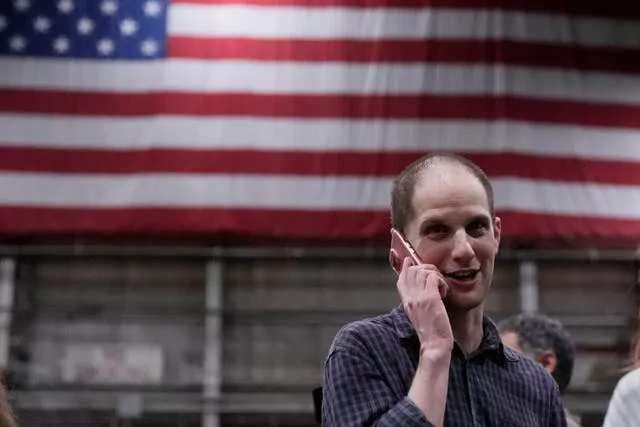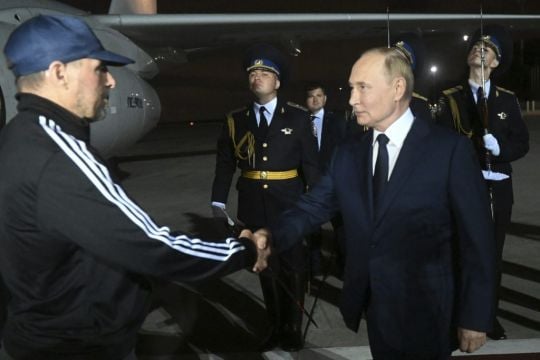The Kremlin acknowledged for the first time that some of the Russians held in the West were from its security services, as new details emerged from the largest prisoner swap since the Cold War.
Families of freed dissidents, meanwhile, expressed their joy at the surprise release.
Wall Street Journal reporter Evan Gershkovich, security consultant Paul Whelan, who has Irish and British citizenship, and dissidents including Russian-British national Vladimir Kara-Murza, were greeted by their families, President Joe Biden and Vice President Kamala Harris in Maryland on Thursday night.

While in Russia, President Vladimir Putin embraced each of the returnees at Moscow’s Vnukovo Airport, and promised them state awards and a “talk about your future”.
Among the eight returning to Moscow was Vadim Krasikov, a Russian assassin who was serving a life sentence in Germany for the 2019 killing of a former Chechen fighter in a Berlin park.
German judges said the murder was carried out on orders from Russian authorities.
Kremlin spokesman Dmitry Peskov told reporters on Friday that Krasikov is an officer of the Federal Security Service, or FSB — a fact reported in the West even as Moscow denied any state involvement.
He also said Krasikov once served in the FSB’s special Alpha unit, along with some of Mr Putin’s bodyguards.
“Naturally, they also greeted each other yesterday when they saw each other,” Mr Peskov said, underscoring Mr Putin’s high interest in including Kresikov in the swap.
Mr Peskov also confirmed that the couple released in Slovenia — Artem Dultsov and Anna Dultsova — were undercover intelligence officers commonly known as “illegals”.

Posing as Argentine expats, they used Ljubljana as their base since 2017 to relay Moscow’s orders to other sleeper agents and were arrested on espionage charges in 2022.
Their two children joined them as they flew to Moscow via Ankara, Turkey, where the mass exchange took place.
They do not speak Russian, and only learned their parents were Russian nationals sometime on the flight, Mr Peskov said.
They also did not know who Mr Putin was, “asking who is it greeting them,” he added.
“That’s how illegals work, and that’s the sacrifices they make because of their dedication to their work,” Mr Peskov said.
Two dozen prisoners were freed in the historic trade, which was in the works for months and unfolded despite relations between Washington and Moscow being at their lowest point since the Cold War after Mr Putin’s February 2022 invasion of Ukraine.
Moscow freed 15 people in the exchange — Americans, Germans and Russian dissidents — most of whom have been jailed on charges widely seen as politically motivated. Another German national was released by Belarus.







